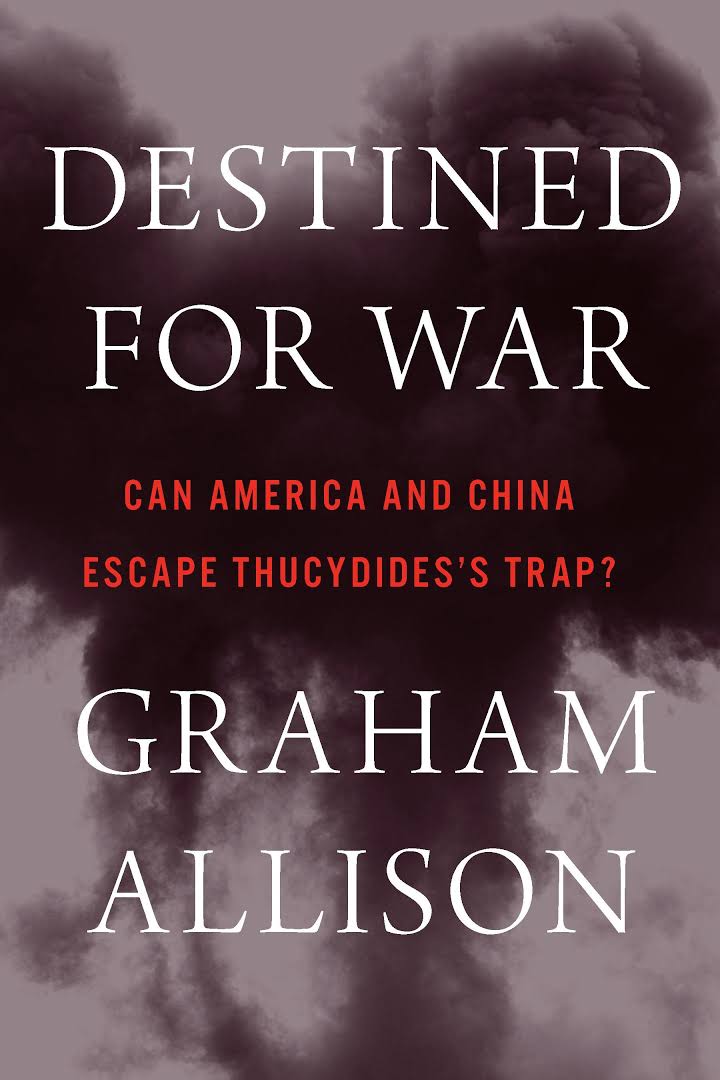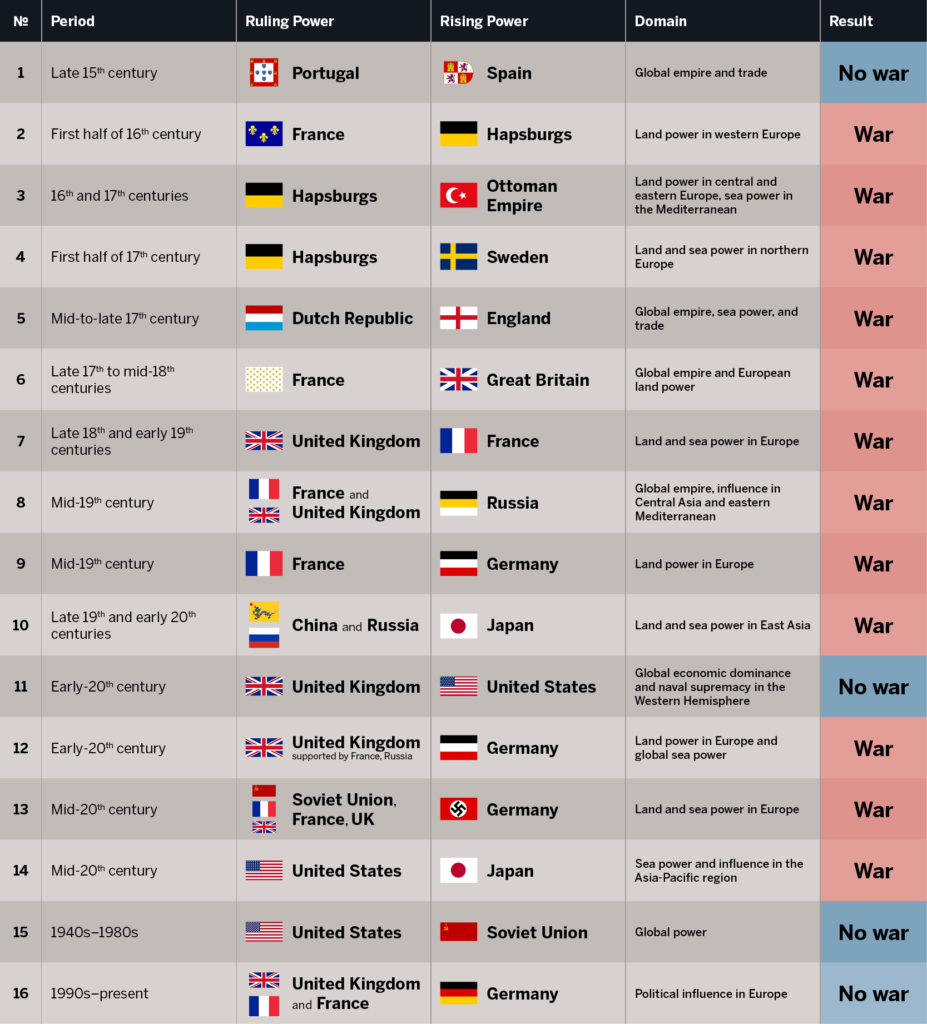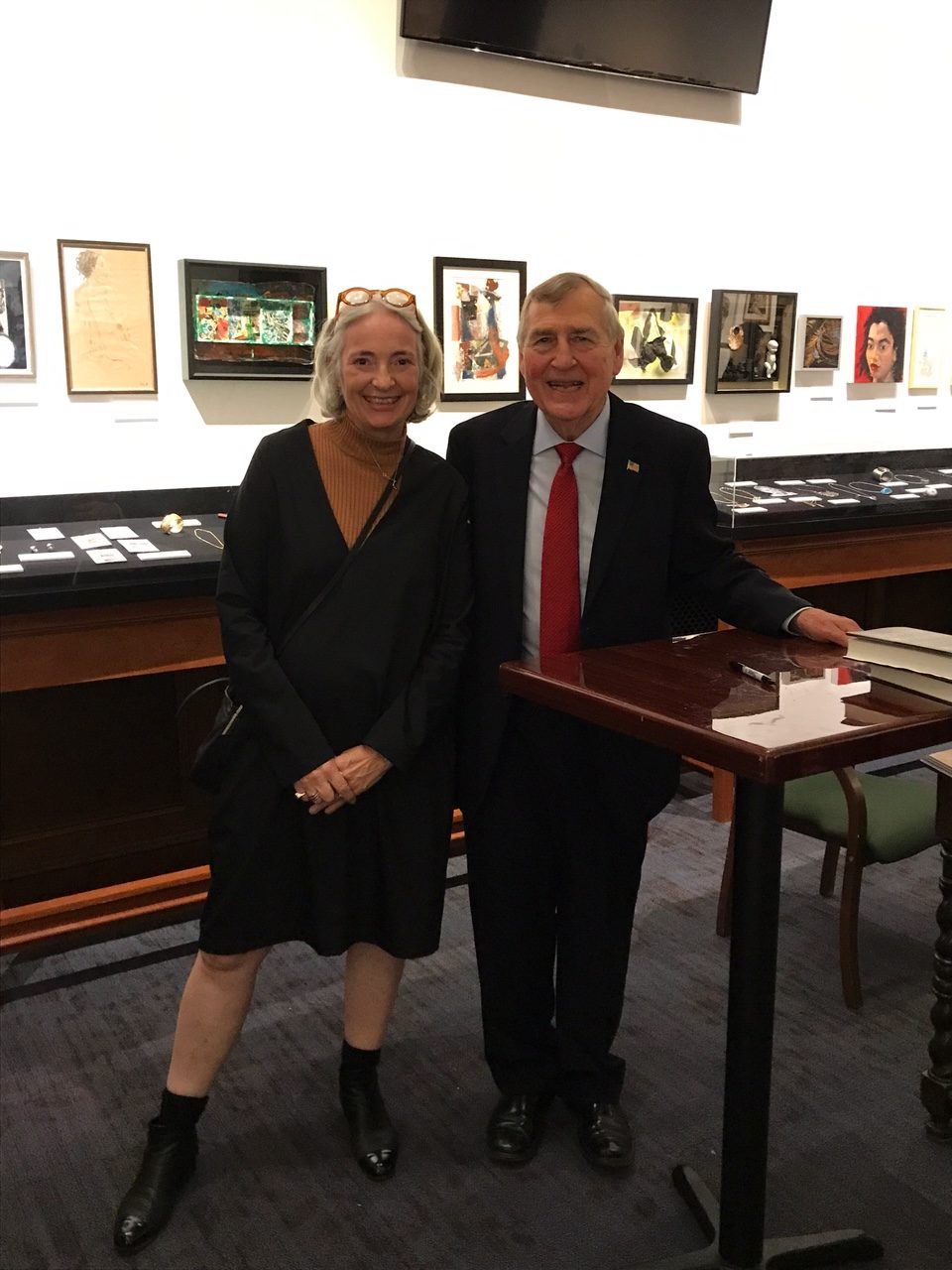On the 31 May 2017 I had the pleasure of attending a conversation between Graham Allison and General David Petraeus (Ret.) on Allison’s latest book Destined for War. The event was held at a place called 92Y in New York. The event was well attended by probably around 500 people. The gentleman sitting next to me was an army veteran who served under Petraeus and was full of accolades for the General. My key learnings from the talk and the book are as follows. See a video of the full conversation at the end of this post.
Allison’s book is based on the concept of what he has termed Thucydides’s Trap. The term describes a situation in which a rising power challenges a ruling power, making war inevitable. Allison looks back over the last 500 years and identifies and analyses 16 such cases of a rising power challenging a ruling power: in 12 of these, a war resulted (see table below). The term is named after the historian Thucydides who explained: “It was the rise of Athens and the fear that this instilled in Sparta that made war inevitable.”
The two powers Allison discusses are the United States and China. Put bluntly, the United States is the ruling power and China is the rising power. Allison reinforced the fact that neither the United States nor China want war, but that their goals are likely to create Thucydides’s Trap. Allison notes that both Donald Trump and Xi Jinping promise to make their countries “great again”.
Allison states in his conclusion that:
… [T]he American work ethic has lapsed into mediocrity, while its consumer society has become decadent.
If the leaders in each society grasped the seriousness of the problems it faced on the home front and gave them the priority they deserved, officials would discover that devising a way to “share the twenty-first century in Asia” was not their most serious challenge.
Will they recognise this reality? Will either or both nations summon the imagination and fortitude to meet their domestic challenges? If they do so, will they be skillful enough to secure their vital interests without stumbling to war? (pp. 239–240)
Destined for War is clearly written to prevent war. It illustrates how war might eventuate (e.g. through a trade conflict, cyber attack or accident). At his talk Allison discussed North Korea in detail and how it might act as the match that ignites the fire. His argument was very compelling; he referred to North Korea as a slow Cuban Missile Crisis. Importantly, the book contains a clear message as to how to prevent a war that no one wants, specifically suggesting that the United States and China scale back their ambitions.
This discussion was fascinating and far exceeded my expectations. Two days later the book was discussed in an article by David E. Sanger and Jane Perlez on the front page of The New York Times: ‘Trump Hands the Chinese a Gift: The Chance for Global Leadership‘ (1 June 2017). It discusses how Trump’s decision not to support the Paris climate accord is a gift for China (the rising power).
President Trump has managed to turn America First into America Isolated. In pulling out of the Paris climate accord, Mr. Trump has created a vacuum of global leadership that presents ripe opportunities to allies and adversaries alike to reorder the world’s power structure. His decision is perhaps the greatest strategic gift to the Chinese, who are eager to fill the void that Washington is leaving around the world on everything from setting the rules of trade and environmental standards to financing the infrastructure projects that give Beijing vast influence …
“What the Paris accord represented, in a fractured world, was finally some international consensus, led by two big polluters, China and the United States, on a common course of action,” said Graham T. Allison, the author of a new book, “Destined For War: Can America and China Escape Thucydides’s Trap?”
“What you’d expect us to do is sustain our position by maintaining our most important relationship around the world and address what the citizens of our allies consider their most important problems: economic growth and an environment that sustains their children and grandchildren,’’ he added. “Instead, we are absenting the field.”

The world has become more complex and New Zealand must become an informed player, firstly working to understand the goals and ambitions of international global leaders and secondly using our leverage to support and manage the best way forward.
Lastly, we should be prepared for every eventuality. Wars of the future may not be fought with guns or trade barriers, but with new weapons such as cyber weapons (e.g. attacking systems for strategic, political or military purposes), medical terrorism (e.g. creating pandemics), and AI technology (e.g. adding AI to existing bombs). Allison’s book looks at what global leaders can do to change the world, but we also need to be aware of what small, disgruntled nations, groups or individuals can do to harm citizens. New Zealand needs to have a good antenna and an effective response system if war eventuates, in whatever form it may take.
I remain both optimistic and pragmatic. Without thinkers and authors such as Allison, the world would be more at risk. I highly recommend this book.
About 92Y
92Y (or 92nd Street Y) is a Jewish community and cultural centre that hosts a range of diverse talks and events that are all interesting and unique. If you are ever travelling to New York and have a spare evening, I suggest you check it out.


